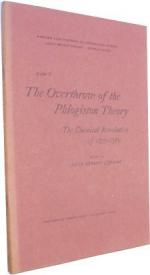|
This section contains 1,790 words (approx. 6 pages at 300 words per page) |

|
Overview
At the beginning of the eighteenth century the Phlogiston theory of fire dominated. By the end of the eighteenth century, however, the Phlogiston theory had been overturned by the new concept of the combustion of oxygen. The overthrow of the Phlogiston theory of fire is often presented as a shining example of the triumph of good science over bad, yet the saga is one of many false starts, false experiments, and false assumptions. Personalities, social and cultural influences, and the new emphasis on experimental analysis and natural causes combined to challenge and replace the Phlogiston theory.
Background
The Greek philosophers considered fire to be one of the basic elements of nature, offering a number of different interpretations. Heraclitus of Ephesus (about 535-475 B.C.) made fire the universal force...
|
This section contains 1,790 words (approx. 6 pages at 300 words per page) |

|


